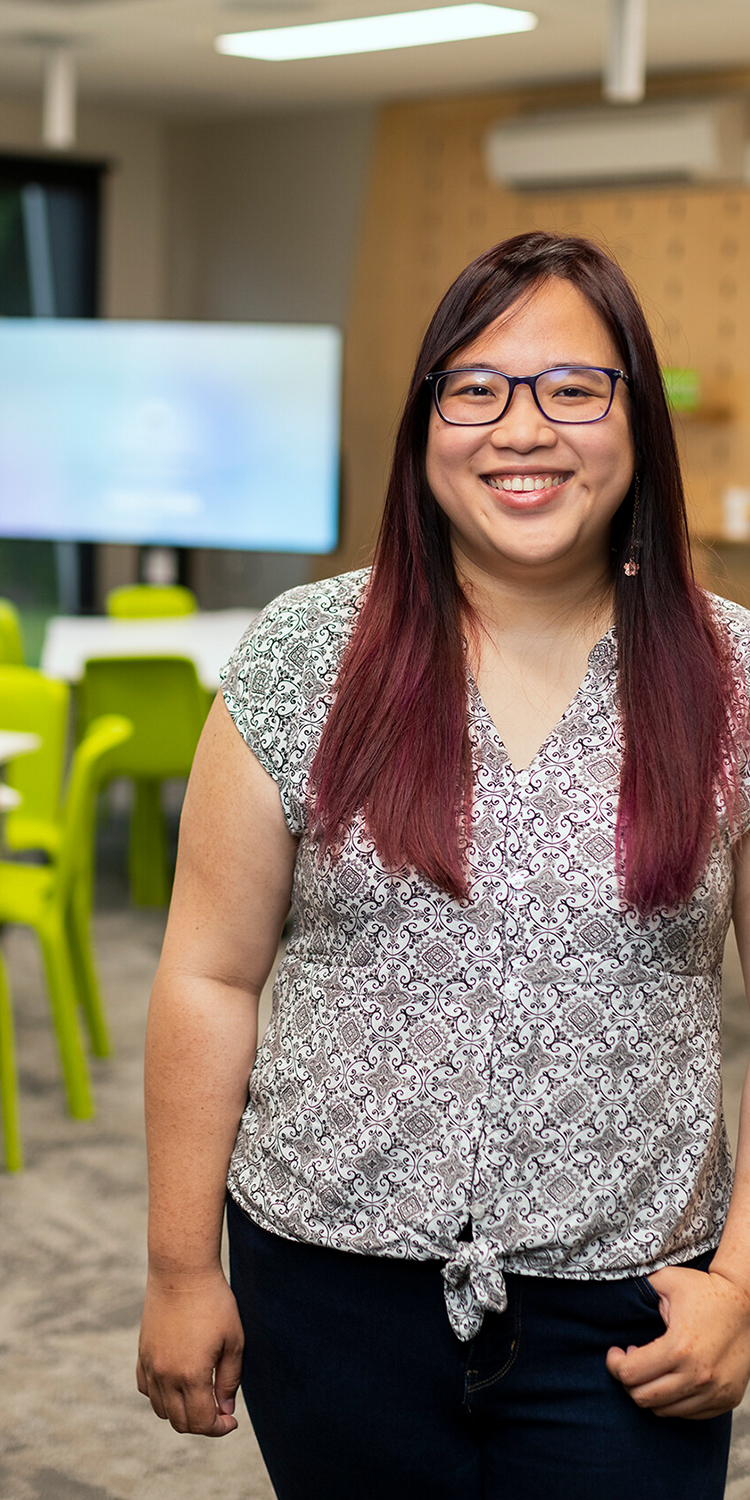Entry requirements
Admission criteria
Employer reserved program
To be eligible, an applicant must:
- Be a teacher who has successfully completed a four year education degree or equivalent from a recognised higher education institution; AND
- Be nominated by Catholic Education South Australia (CESA).

Please note that entry requirements for this degree are provisional and subject to change.
Why Graduate Certificate in Education (Catholic Education)?
Integrating faith, academic excellence, and moral development in learning, Catholic Education aims to nurture the spiritual, intellectual, and social growth of students. Its curriculum combines academic standards with religious teaching.
Catholic Education is one of the three main education employment choices for students in Australia, alongside government and independent options.
Studying Catholic Education builds your skills in critical thinking, ethical decision-making, and cultural competence – along with extending your knowledge of Catholic Education practices and values.
Expand your professional toolkit and upskill in Catholic Education with our Graduate Certificate in Education (Catholic Education).

Overview
If you’re working in a Catholic Education setting and want to upskill, our Graduate Certificate in Education (Catholic Education) is for you.
You’ll study four courses that integrate biblical studies, theology, and education – extending your understanding of Catholic educational principles and practices.
Build expertise in designing curriculum for Religious Education – skills that are also appliable to other learning areas.
This graduate certificate teaches the latest education research, ensuring you are well-versed in current theories, debates, and practices.
Key features
Extend your knowledge of Catholic Education practices, principles and policies.
Prepare for leadership roles in Catholic Education settings.
Study part-time while you work.
Access the latest education research and evidence-based methods.
Meet your professional development requirements.
Gain full credit for these studies (four courses) towards the Master of Education.
What you'll learn
Adelaide University’s Graduate Certificate in Education (Catholic Education) explores Catholic Education values, practices, principles, and policies.
You’ll study the Christian Scriptures (Old and New Testaments), from two perspectives – literary (examining their structure, themes, and literary devices) and sacred (understanding their religious significance and spiritual teachings). You’ll analyse the different ways of interpreting the Scriptures and how these interpretations can be incorporated into Catholic teaching practices.
Examine key theological topics and relate them to modern experiences and challenges. By connecting traditional religious teachings with contemporary life, you’ll pave the way for meaningful conversations.
Focus on Catholic identity and purpose through personal, professional, community, and global perspectives. You’ll also look at Catholic identity and purpose within Religious Education curriculum design. Learn how to create and improve Religious Education (RE) programs through teaching methods, materials, and student assessment strategies.
Specialisations
The Graduate Certificate in Education is also available with specialisations in the following:
- The Brain and Learning
- Digital Learning
- Early Childhood
- Education Leadership and Innovation
- First Nations, Cultures and Perspectives
- Islamic Education
- Research
- TESOL
- Wellbeing and Inclusion.
This graduate certificate does not provide a recognised qualification for teaching in schools. For this pathway, see our Master of Teaching, which has specialisations in:
- Early Childhood Education
- Primary
- Secondary.
This degree can be studied mostly online, however it may also have some on-campus and/or in-person requirements you will need to complete for accreditation purposes. This may include in-person intensive classes, workshops or professional placements.

What courses you'll study
Complete 24 units comprising:
- 24 units for Core courses
Complete 24 units comprising:
- 24 units for all Program core
| Course name | Course code | Units | |
|---|---|---|---|
|
Course name
Catholic Theology: An Introduction
|
Course code
EDUCX204
|
Units
6
|
|
|
Course name
Catholic Scriptures: An Introduction
|
Course code
EDUCX203
|
Units
6
|
|
|
Course name
Catholic Schools: Identity, Mission and Practice
|
Course code
EDUCX500
|
Units
6
|
|
|
Course name
Curriculum Design in Catholic Education
|
Course code
EDUCX413
|
Units
6
|
|
| Course name | Course code | Units | |
|---|---|---|---|
| Year 1 | |||
| Semester 2 | |||
|
Course name
Catholic Theology: An Introduction
|
Course code
EDUCX204
|
Units
6
|
|
|
Course name
Catholic Scriptures: An Introduction
|
Course code
EDUCX203
|
Units
6
|
|
|
Course name
Catholic Schools: Identity, Mission and Practice
|
Course code
EDUCX500
|
Units
6
|
|
|
Course name
Curriculum Design in Catholic Education
|
Course code
EDUCX413
|
Units
6
|
|
| Semester 1 | |||

